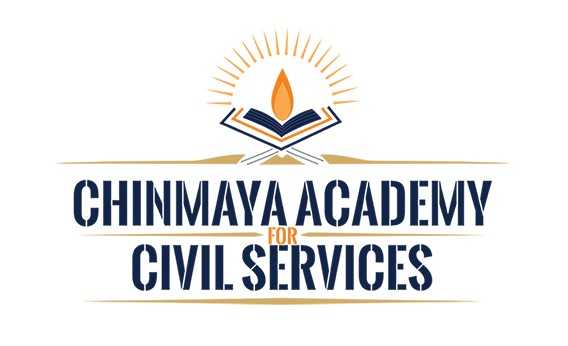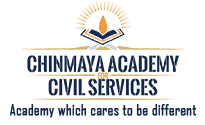The UPSC Civil Services Examination has three stages: the Preliminary exam, the Mains exam, and an Interview. During the Mains exam, candidates are required to choose an optional subject. This choice can significantly impact their overall ranking in the IAS Exam. Literature subjects have shown an increased success rate in recent years.
One of the optional subjects offered by the UPSC Civil Services Examination is Kannada Literature. The language is widely spoken in several Indian states, including Karnataka, and is recognized as one of India’s 22 official languages. The Mains exam includes Kannada Literature as an optional subject, with a syllabus that can be found in a downloadable PDF. Aspirants should familiarize themselves with the recommended UPSC Kannada Literature Books.
The Kannada Literature Syllabus for the IAS Mains exam consists of two papers: Paper I and Paper II. The language has a rich history and evolving literature, making it a suitable choice for those who have studied Kannada throughout their academic career or grew up speaking it as their native language. All answers in the Civil Services Examination must be written in Kannada. The subject carries 500 marks, with each paper worth 250 marks.
KANNADA
PAPER-I
(Answers must be written in Kannada)
Section A
A. History of Kannada Language
What is Language ? General characteristics of Language.Dravidian Family of Languages and its specific features.Antiquity of Kannada Language. Different phases of its Development.
Dialects of Kannada Language : Regional and Social.Various aspects of developments of Kannada Language:phonological and Semantic changes. Language borrowing.
B. History of Kannada Literature
Ancient Kannada literature : Influence and Trends, Poets forstudy : Specified poets from Pampa to Ratnakara Varniare to be studied in the light of contents, form andexpression : Pampa, Janna, Nagachandra.
Medieval Kannada literature : Influence and Trends.
Vachana Literature : Basavanna, Akka Mahadevi.
Medieval Poets : Harihara, Raghavanka, Kumara-Vyasa.
Dasa literature : Purandara and Kanaka.
Sangataya : Ratnakarvarni
C. Modern Kannada literature : Influence, trends and ideologies, Navodaya, Pragatishila, Navya, Dalita and Bandaya.
Section B
A. Poetics and Literary Criticism
Definition and concepts of poetry; Word, Meaning, Alankara, Reeti, Rasa, Dhwani, Auchitya.
Interpretations of Rasa Sutra. Modern Trends of literary criticism : Formalist, Historical, Marxist, Feminist, Postcolonial criticism.
B. Cultural History of Karnataka
Contribution of Dynasties to the culture of Karnataka: Chalukyas of Badami and Kalyani, Rashtrakutas, Hoysalas, Vijayanagara rulers, in literary context.
Major religions of Karnataka and their cultural contribution.
Arts of Karnataka ; Sculpture, Architecture, Painting, Music, Dance—in the literary context.
Unification of Karnataka and its impact of Kannada literature.
PAPER-II
(Answers must be written in Kannada)
The Paper will require first-hand reading of the Texts prescribed and will be designed to test the critical ability of the candidates.
Section A
A. Old Kannada Literature
1. Vikramaarjuna Vijaya of Pampa (Cantos 12 & 13), (Mysore University Pub.)
2. Vaddaraadhane (Sukumaraswamyia Kathe, Vidyutchorana Kathe)
B. Medieval Kannada Literature
1. Vachana, Kammata, Ed. K. Marulasiddappa K.R. Nagaraj (Bangalore University Pub.)
2. Janapriya Kanakasamputa, Ed. D. Javare Gowda (Kannada and Culture Directorate, Bangalore)
3. Nambiyannana Ragale, Ed., T.N. Sreekantaiah (Ta. Vem. Smaraka Grantha Male, Mysore)
4. Kumaravyasa Bharata : Karna Parva (Mysore University)
5. Bharatesha Vaibhava Sangraha Ed Ta. Su. Shama Rao (Mysore University)
Section B
A. Modern Kannada Literature
1. Poetry : Hosagannada Kavite, Ed. G.H. Nayak(Kannada Saahitya Parishattu,Bangalore)
2. Novel : Bettada Jeeva—Shivarama KarantaMadhavi—Anupama Niranjana Odalaala-Deva-nuru Mahadeva
3. Short Story : Kannada Sanna Kathegalu, Ed. G.H. Nayak (Sahitya Academy, New Delhi)
4. Drama : Shudra Tapaswi—Kuvempu. Tughalak—Girish Karnad.
5. Vichara : Devaru—A.N. Moorty Rao (Pub: D.V.K. Sahitya : Moorty, Mysore.)
B. Folk Literature :
1. Janapada Swaroopa—Dr. H.M. Nayak. (Ta. Vem. Smaraka Grantha Male, Mysore.)
2. Janpada Geetaanjali—Ed. D. Javare Gowda.(Pub : Sahitya Academy, New Delhi).
3. Kannada Janapada Kathegalu—Ed. J.S. Paramashiviaah (Mysore University).
4. Beedi Makkalu Beledo. Ed. Kalegowda Nagavara (Pub : Bangalore University).
5. Savirada Ogatugalu—Ed. S.G. Imrapura.


